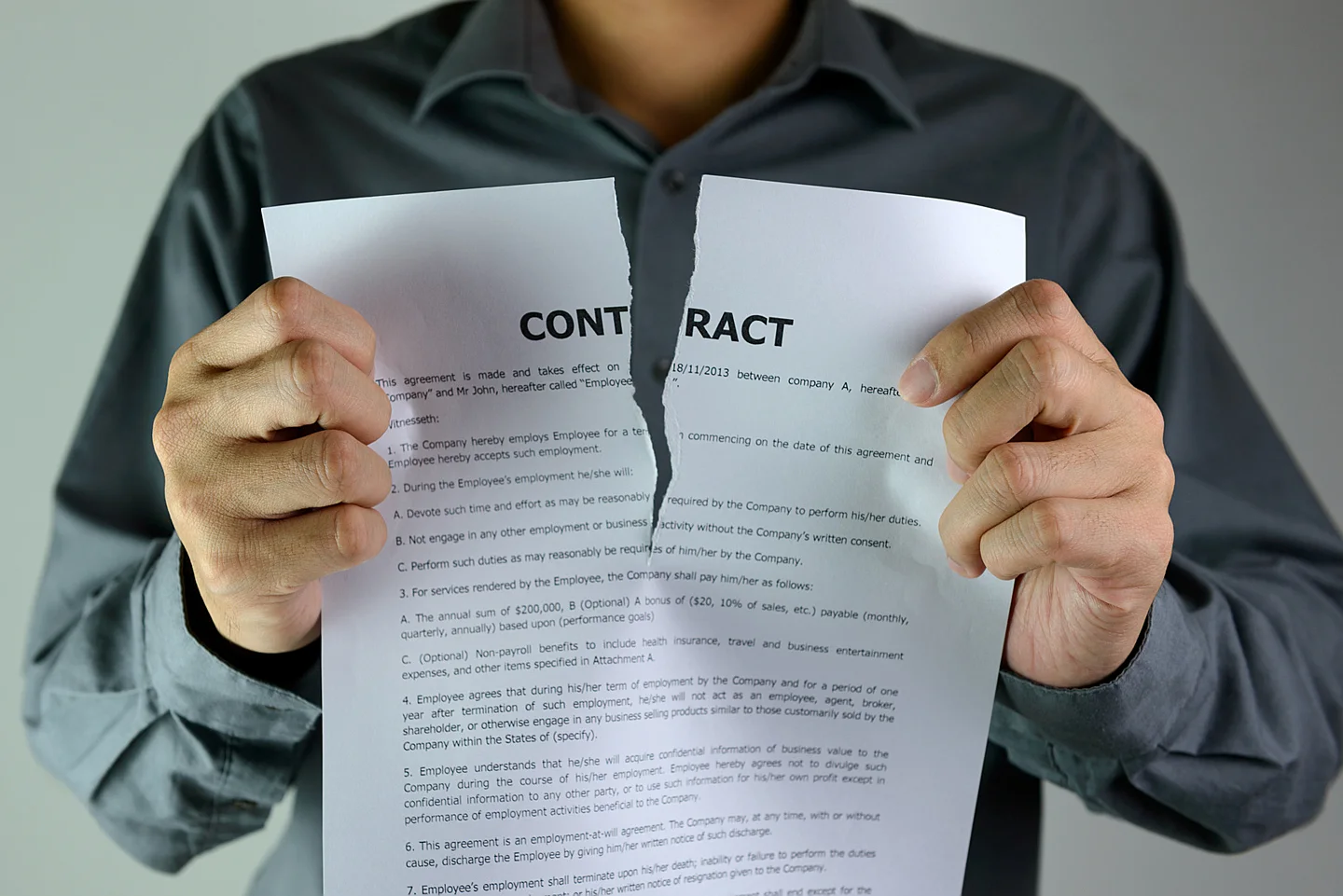.webp)
.webp)
The Questions You Always Wondered But Nobody Ever Has The Answers To
You have signed the lease at your new abode. The major issues and concerns regarding your new rental have been addressed, but what about the other questions that are not standard procedure or stated on the lease policy? You are sure to have certain move-in questions now that you are moving into your new home - questions that you hadn’t thought of before up until now.
When you rent or buy a home, there is often a never-ending checklist on your mind - rent price, moving logistics, renovation, decorating, unpacking, buying new furniture, mortgage payments - the list can be so overwhelming that you forget to address other less talked about issues or things deemed “less important”.
Don’t stress, because this happens to all of us. You can’t really know all the ins and outs and what you want and need until you have gone through some trial runs in your new place. Renters have a lot of uncertainties when it comes to how best to navigate around renting and landlord issues - rest assured - you are not alone, and we have just the thing here to help you.
We found that there was a list of questions that renters and home buyers always have, but never really have the answers for. Here are our answers to the most common questions you may be asking yourself after you have moved into your new rental.
Have the locks been changed? If not, should I change the locks?
Security is the number one concern when you first move into a new home, whether you are renting or buying. If you are a renter, you should know that most landlords will usually have spare copies of the keys as backup (in case of emergencies). If you are a buyer, the seller (previous owner) will most definitely have a set of keys or even spare sets that they have given to trusted neighbours, family members, friends, contractors, decorators, and helpers. The idea of a bunch of strangers having quick and easy access to your home can make one feel very uneasy. Personally, I would not want to have anyone entering my home without my permission, and just the thought of someone having the ability to breach the security in my home (even if they don’t actively do so) is terrifying enough.
It’s absolutely normal to be nervous at the thought of a previous renter or even your landlord having a copy of your keys, especially if you are a person of high vigilance. But the question is this; as a renter, are you allowed to change the locks at your own discretion? In some places, and under some policies, tenants are not allowed to change the locks without the landlord’s permission. The reason being that the landlord needs to have a set of keys for access in cases of emergency, like if you accidentally lock yourself out, leave the stovetop burning, have a gas leak or a flooded apartment from a burst water pipe. There are two sides to looking at it. On the one hand, you can feel safe knowing that if you were to ever be away from the home and need someone to take care of an emergency matter, the person-in-charged can enter and take care of business for you. On the other hand - the more cautionary side - you may find yourself facing questions like, “Can I trust my landlord or seller?”, “What if the keys fall into the wrong hands and I become the naive victim of a home burglary?”.
There really is no simple answer to this issue because it is highly subjective. It is based on your own personal feelings about your landlord, seller, and your own preconceived notions and opinions of what it means to feel safe. While security for some people means simply locking the front door upon leaving the home, for others, it could mean barricading all the doors and windows shut with the help of high-tech security systems.
As a renter, you can ask for the locks to be changed before moving in or you can ask permission to change the locks yourself (if you trust no one but yourself). You need to talk to your landlord about what he or she is willing and unwilling to comply with. It is all very situational. If you plan ahead, you can discuss these issues before the lease is signed. But if you have signed the lease already, look over your lease carefully to see if there are any specific clauses in there about new locks on your doors. If you still can’t figure it out or aren’t sure, then ask! It’s much smarter and efficient to talk to your landlord face-to-face and discuss these necessary concerns. After all, it does have to do with home security, and we all want to feel safe and at ease in our own residence.
If you are a buyer who has just taken over the title of the property, it is entirely up to you. You may be afraid that extra copies of your home keys are floating around in different hands. if you want to either change the locks completely or rekey the locks. Option one is more expensive, invasive and complicated because you will have to overhaul the entire system to replace it with another model. This is the option for you if you don’t feel the current locks are up to your standard or you just want to upgrade to a stronger, more secured system. The latter option of rekeying is for people who don’t want to go through the trouble of changing the entire lock. By rekeying, you simply change the lock so that it can only be operated by another key.
Who are my new neighbours?
When you move into a suburb, it’s generally assumed that you should become friendly with your neighbours. Urbanites don’t tend to think this way because there’s less intimacy and chances to build relationships when you live in a complex with over hundreds of units. Wherever you move, you should want to become friendly with your neighbours. You never know what you may need. Months down the line, you may need to call on them for an emergency, or need help with something, anything. Before you move in, it’s wise to ask your landlord or seller about who your neighbours are. Are they single occupants, young couples or families with children? Do your new neighbours have any pets and what kind of activities do they pursue that may affect and influence your day-to-day life? You should know the general demographic and lifestyle of nearby tenants.
A lot of issues have broken out after move-in because of neighbours clashing. A family with young children may not be so happy if the new neighbours moving in are college kids who like to be loud and throw parties till the break of dawn. Likewise, if you are an elderly retired couple - you may find yourself in a bit of shock and pretty displeased if you just signed the lease to a complex that is full of young singles that don’t complement your own lifestyle choices. People tend to think that neighbours don’t matter (more so in urban cities), but it matters more than we like to give credit to. Having pleasant neighbours that complement your own lifestyle will serve as a blessing in the long run, and you might even make some lifelong friends out of it.
What’s included in the apartment? Do I get the electronic appliances, home hardware, blinds and curtains?
This is very circumstantial. Sometimes features like electronic appliances and window treatments will be included with the residence, and other times it won’t be, so it’s always a good idea to check beforehand. Sometimes you can come to an agreement with the landlord about what gets left behind for you. When it comes to a rental, usually things like the refrigerator, freezer, stovetop, air-conditioning system, the heater will be included as part of the apartment after the transition. Window treatments like curtains and drapes usually are not included, but sometimes, basic treatments like blinds will be included.
The same goes for home buyers. You can specifically discuss with your seller which items get included in the transaction. Sometimes (in rare cases, but not super uncommon), a buyer will ask for ALL of the furniture, decor, and home appliances to be untouched and included in the contract. They essentially buy the entire home, with everything inside of it. Everything is up for negotiation.
Can I be an AirBnb Host?
With the increasing popularity of Airbnb, more and more tenants are asking this question. Everyone wants to know about Airbnb laws but there are still a lot of blurry zones - an ever-evolving one at that.
While some leases will clearly state that long-term subleasing is permitted, others will strictly state against doing so. It's crucial that you check the specific laws in your country and designated area of residence before you go ahead and lease your rental on the popular Airbnb platform.
Furthermore, even if your landlord is okay with it, your other neighbours residing in the building may not be, due to security issues and strangers coming and going all the time. Building committees will usually have rules and policies for or against Airbnb hosting.
You need to consider all of the pros and cons before you go ahead and list a unit. In Hong Kong specifically, premises that offer sleeping accommodation (like that of Airbnb) for a fee of any period less than 28 days MUST be licensed -according to Hong Kong’s Hotel and Guesthouse Accommodation Ordinance. You should also be informed that the maximum penalty for operating an unlicensed guest house is a HK$200,000 fine and two year’s imprisonment at the base minimum. If you are going to list your property on Airbnb, make sure you are complying with locally set rules and regulations of your locale.
Should I document the new home’s condition pre-move in?
Yes, absolutely! For both you and your landlord’s benefit, it is wise to take photos as documentation before you move in. It’s a concrete way of making note of any pre-existing damage so that you are not liable for damages that you were caused by previous tenants. Sometimes, it will be an honest mistake of the landlord to put the blame on you for the pre-existing damage and other times (if you are unlucky to get involved with a dishonest landlord), you may end up paying for things you never caused.
Documenting with photos, videos and notes are crucial so that you can ensure all parties are protected. Make sure that the documentation is dated as well.
Are you interested in apartments for sale in Hong Kong or real estate investing in Hong Kong?
Contact our real estate agents in Hong Kong at Engel & Volkers for more information and viewings of the luxury homes and apartments for sale and rental. Engel & Volkers’ product portfolio ranges from elite homes, luxury mansions, premium residential properties, and other real estate for sale in Hong Kong. We also provide information regarding the real estate market and housing market prices.
Find more at our website at https://www.hongkongev.com

.webp)
.webp)
